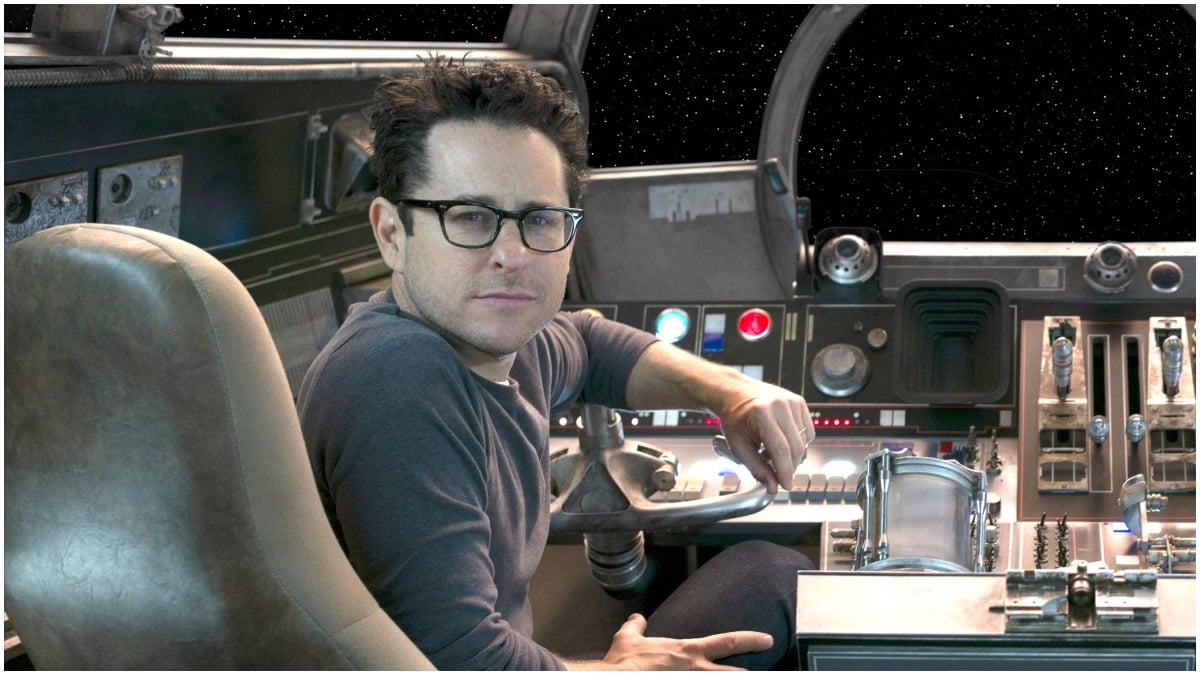
J.J. Abrams is speaking out on what many say is a key flaw of the Star Wars sequels.
In a new interview, the writer/director of The Force Awakens and Rise of Skywalker has acknowledged that the lack of planning before the films were made contributed to the fan backlash against the final chapter.
Abrams and Star Wars
It’s sometimes forgotten that Abrams was not meant to be the key creative figure of the Star Wars films.
When Disney bought Lucasfilm in 2012 and immediately announced Episode VII was coming in 2015, fans were ecstatic at who could be brought in to write and direct.
Abrams had seen success with such reboots with his 2009 Star Trek movie and seemed the best pick to handle the first film. It paid off in a huge success that wowed fans and left the door open for the sequels.
However, Rian Johnson’s The Last Jedi turned out to be a divisive entry for fans. For every fan that seemed to enjoy Johnson’s take, another criticized it for a rough storyline and even seeming to deconstruct Star Wars itself.
Colin Trevorrow was to handle the writing and directing of the concluding chapter of Episode IX. But he was let go, and Lucasfilm asked Abrams to step back to handle what became Rise of Skywalker.
While a box office success, that film was heavily criticized for its storyline and seemingly going out of its way to rewrite several parts of TLJ.
Johnson himself has admitted he had no idea what Abrams was planning and was doing his own take on the franchise.
The lack of planning

To many, the conflicts between Johnson and Abrams highlight that, unlike the MCU, Disney didn’t have an overall plan for the storyline of the movies.
Speaking to Collider, Abrams openly acknowledged this issue and admitted the lack of planning was a problem.
“I’ve been involved in a number of projects that have been – in most cases, series – that have ideas that begin the thing where you feel like you know where it’s gonna go, and sometimes it’s an actor who comes in, other times it’s a relationship that as-written doesn’t quite work, and things that you think are gonna just be so well-received just crash and burn and other things that you think like, ‘Oh that’s a small moment’ or ‘That’s a one-episode character’ suddenly become a hugely important part of the story.
I feel like what I’ve learned as a lesson a few times now, and it’s something that especially in this pandemic year working with writers [has become clear], the lesson is that you have to plan things as best you can, and you always need to be able to respond to the unexpected. And the unexpected can come in all sorts of forms, and I do think that there’s nothing more important than knowing where you’re going.”
However, Abrams was quick to point out that sometimes too much planning can be a bad thing. As he related, often, some of the best ideas happen on the fly and a project is better leaving that option open.
“There are projects that I’ve worked on where we had some ideas but we hadn’t worked through them enough, sometimes we had some ideas but then we weren’t allowed to do them the way we wanted to. I’ve had all sorts of situations where you plan things in a certain way and you suddenly find yourself doing something that’s 180 degrees different, and then sometimes it works really well and you feel like, ‘Wow that really came together,’ and other times you think, ‘Oh my God I can’t believe this is where we are,’ and sometimes when it’s not working out it’s because it’s what you planned, and other times when it’s not working out it’s because you didn’t [have a plan].”
The new plan?

It should be remembered that George Lucas famously never had a detailed plan for the Star Wars movies in mind when he was working on them.
Lucas is upfront in books and interviews on how scores of plotlines were being written on the fly (he didn’t decide to kill Obi-Wan until filming actually began), and that carried to the prequels.
Disney seems to be learning their lesson as more planning is going into the TV shows of The Mandalorian and the upcoming Obi-Wan series.
Even Abrams acknowledges that the lack of planning was a key problem that kept the sequels from being as great as they could have been.
“You just never really know, but having a plan I have learned – in some cases the hard way – is the most critical thing, because otherwise, you don’t know what you’re setting up. You don’t know what to emphasize. Because if you don’t know the inevitable of the story, you’re just as good as your last sequence or effect or joke or whatever, but you want to be leading to something inevitable.”
While Star Wars fans can debate the sequels’ merits, Abrams appears to confirm the lack of planning by Disney was a huge flaw for the franchise.
Star Wars Episodes I-IX streaming on Disney+.